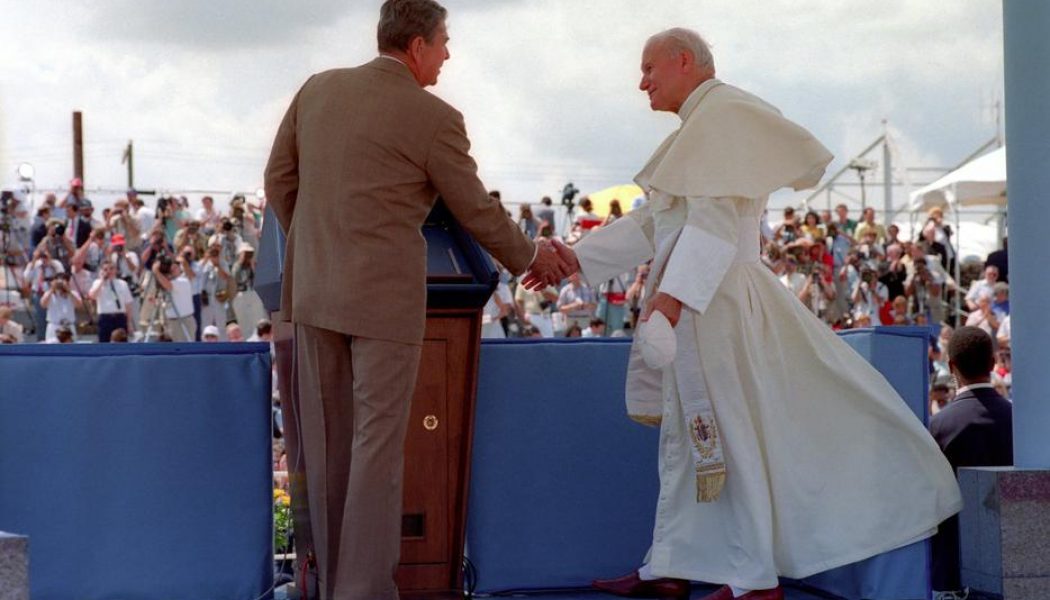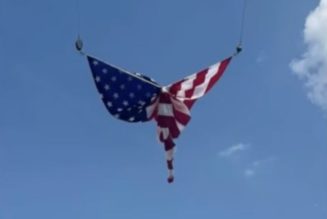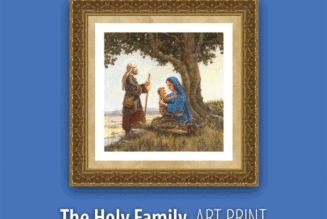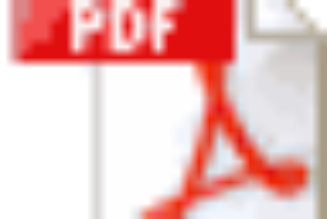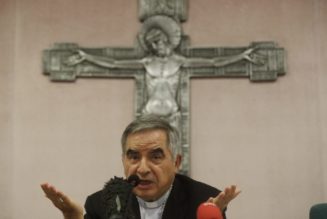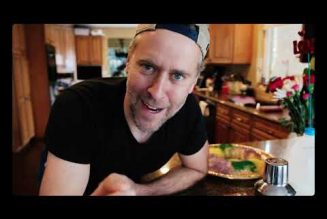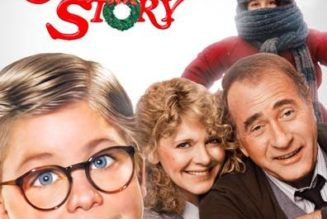
The election of November 2020 comes 40 years to the near-exact date of the election of November 1980. It was an election of great consequence for the world, especially in a major battle confronted by the United States and the Vatican.
Ronald Reagan won that election, with the slogan “Make America Great Again.” Yes, literally. The U.S. public clearly agreed with that mission and the man for the job. On Nov. 4, 1980, Americans chose Ronald Reagan over the incumbent, President Jimmy Carter, in a landslide. Reagan won the popular vote by 10%, swept 44 of 50 states, and took the Electoral College by an overwhelming margin of 489 to 49.
One man who foresaw the dramatic shift was a Polish citizen behind the Iron Curtain, one who admired both the new American president and the new Polish pope. On Dec. 7, 1980, Lech Walesa, the head of the Solidarity movement, stood on a windy plain on the outskirts of Gdansk. Unafraid, he spoke openly of the U.S. election.
“It was intuition, perhaps,” Walesa told a group of reporters, Americans among them, “but one year ago I envisioned what would happen. Reagan was the only good candidate in your presidential campaign, and I knew he would win.” The Catholic labor leader spoke prophetically that December day: “Someday the West will wake up and you may find it too late, as Solzhenitsyn has written. Reagan will do it better. He will settle things in a more efficient way. He will make the U.S. strong and make it stand up.”
The world was about to change. Lech Walesa understood, not only because he understood the man about to step into the White House, but also because he understood the man who had stepped from Krakow to St. Peter’s Square two autumns earlier: Pope John Paul II.
Reagan understood, too. One of his first overtures was to reach out to the Vatican. He had wanted to meet John Paul II ever since he watched footage of the Pope’s first visit to his Polish homeland in June 1979.
“That’s it!” Reagan had shouted at his television as he and close aide Richard Allen watched the remarkable news footage of the son of Poland’s visit to Warsaw. “The Pope is the key! The Pope is the key!” Reagan told Allen, a Catholic, that he needed to win the presidency and they needed to reach out to this new Polish pope and Vatican and “make them an ally.”
Shortly after Reagan got elected, he reached out personally to Cardinal Pio Laghi, then an archbishop who was just named the papal representative to Washington. Archbishop Laghi had been in Argentina at the time. He later recalled that Reagan (prior to his presidential inauguration) had sent him a “nice telegram” from California welcoming him to Washington. “He had known that I had been appointed to the United States and he sent me a telegram,” recalled Cardinal Laghi. “I was surprised. He said in the telegram, ‘It seems we are starting our mission together — me as president and you as apostolic delegate.’ So I answered and thanked him very much. Then we established a very good relationship. I would call it even friendly.”
A couple years ago I talked to Richard Allen about the Laghi appointment. He remembered fondly that “it was a very happy circumstance that Archbishop Pio Laghi was appointed to the United States.” Allen recalled the first diplomatic reception of the new Reagan White House. The ambassadors of various foreign countries were lined up according to precedence, meaning that the one serving the longest was first in line to greet the president and the newest appointment in terms of service in Washington was at the end of the line. Archbishop Laghi had just been appointed. Allen remembers how the stars had perhaps providentially aligned that evening:
“I was at the very end of the line with my wife, Pat. And that night, in that reception with 116 or 125 ambassadors walking through — it was an event that I had to organize — I was at the very end. And that person right in front of us was Archbishop Pio Laghi, who had flown up the day before from Argentina, where he had been ambassador. And now he was going to be representative to the United States. But he was in the diplomatic core. And so, we stood in line. And you can imagine, [with] the 116 ambassadors and their wives going through a line to meet the president, that I had about 45 minutes or 50 minutes with Archbishop Pio Laghi. And I knew immediately that we had a 10-strike in this man. He had the full confidence of the Pope. I could tell that he wasn’t bluffing. He was earnest, down-to-earth, and that was a source of great joy to me that I discussed with the president later on. And I was able to then work with Pio Laghi from time to time in an important way to get messages through to the Vatican.”
Those messages were very important, as was the foundation that Allen helped establish with Reagan throughout 1981. It would be seized in earnest by Bill Clark in January 1982, when Allen was replaced by Clark at the Reagan National Security Council.
Clark and CIA Director Bill Casey, two Irish Catholics, upped the activity with Archbishop Laghi and the Vatican. Clark and Casey were Reagan’s top lieutenants in his effort to defeat Soviet communism. They worked very closely with Archbishop Laghi. This troika served as a crucial conduit between the Vatican and the White House in the 1980s. It was a partnership that would change the world, and it would not have happened without that Reagan presidential victory in November 1980.
But such was only one battle going on. Indeed, for an intriguing example of how certain events quietly but even profoundly happen behind the scenes, consider a John Paul II moment from that same November 1980 of Ronald Reagan’s election.
That November, Pope John Paul II gave an interview to a group of German Catholics. It contained no reference to the president of the United States, but it did contain a reference to Our Lady of Fatima.
The Pope was pointedly asked, “What about the Third Secret of Fatima? Should it not have already been published?” John Paul, who by then had not personally seen the Third Secret, reportedly responded: “Given the seriousness of the contents, my predecessors in the Petrine office diplomatically preferred to postpone publication so as not to encourage the world power of communism to make certain moves.” He admonished: “Many wish to know simply from curiosity and a taste for the sensational, but they forget that knowledge also implies responsibility. They only seek the satisfaction of their curiosity, and that is dangerous if at the same time they are not disposed to do something and if they are convinced that it is impossible to do anything against evil.” John Paul II then reportedly hoisted his Rosary and insisted: “Here is the remedy against this evil. Pray, pray, and ask for nothing more. Leave everything else to the Mother of God.”
As if that were not all fascinating enough, the Pope was then asked, “What is going to happen to the Church?” to which he replied with this eye-opening statement: “We must prepare ourselves to suffer great trials before long, such as will demand of us a disposition to give up even life, and a total dedication to Christ and for Christ. … With your and my prayer it is possible to mitigate this tribulation, but it is no longer possible to avert it, because only thus can the Church be effectively renewed. How many times has the renewal of the Church sprung from blood! This time, too, it will not be otherwise. We must be strong and prepared, and trust in Christ and His Mother, and be very, very assiduous in praying the Rosary.”
What all of this meant, if it was indeed reported accurately, remains a matter of mystery and dispute to this day. Did that trial occur and end? Did it apply to John Paul II’s very person? Did it occur six months later in Rome on May 13, 1981, the feast day of Our Lady of Fatima, when the Polish Pontiff was nearly assassinated by a hitman working for the communists? Has it yet to come for all of us?
The full answer is known only in the councils of heaven.
But this much we know in retrospect: In November 1980, with the new man in the chair of St. Peter and a like-minded anti-communist elected to the Oval Office in Washington, there were two sudden game changers athwart in the Cold War confrontation. Things were about to get very interesting for Moscow, for the world and for history.
Unbeknownst to history, Ronald Reagan and John Paul II would partner together for a great victory: the defeat of atheistic Soviet communism.
That was a great victory, a great battle won and worth remembering, as plenty of great trials face us anew in 2020.
Join Our Telegram Group : Salvation & Prosperity
